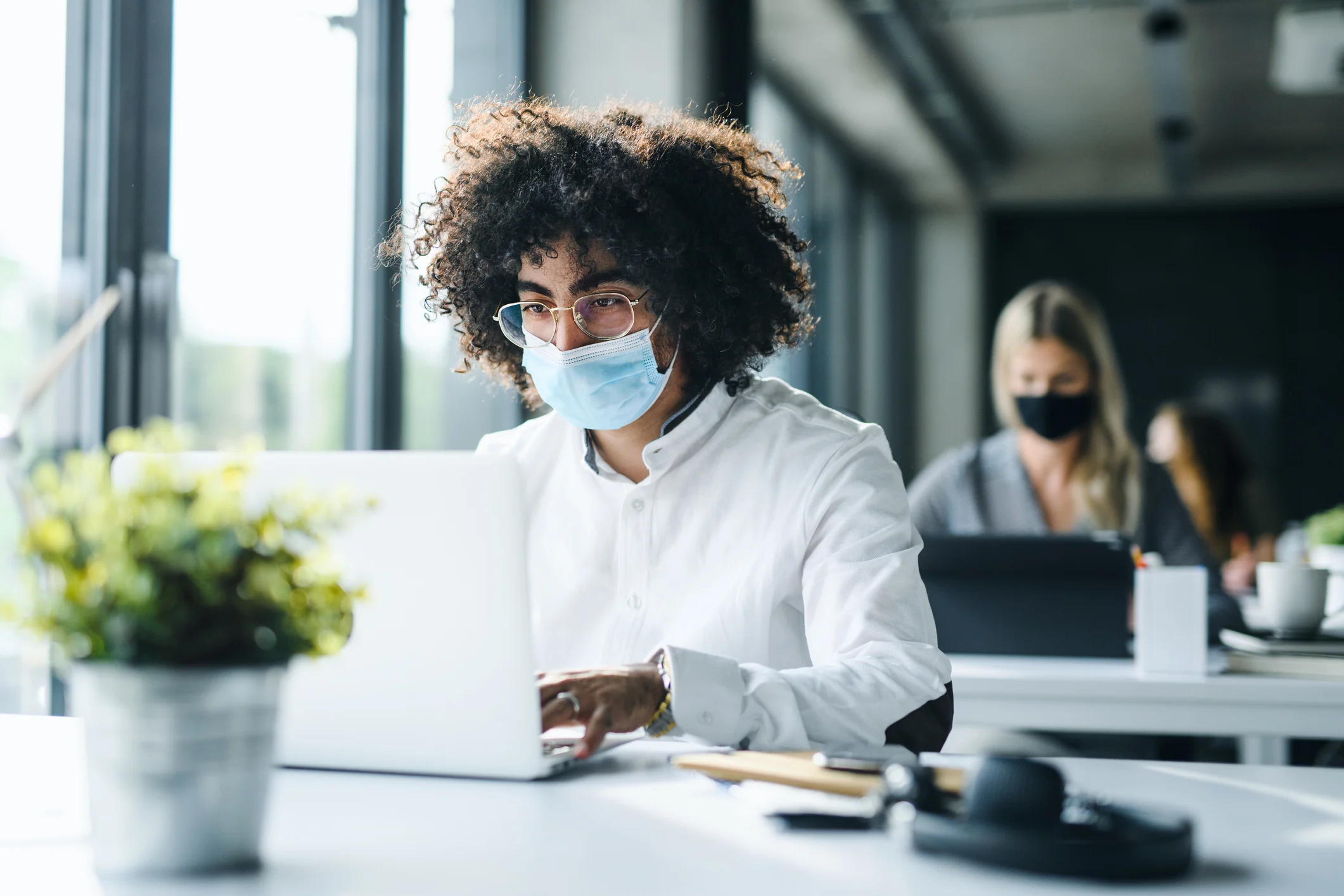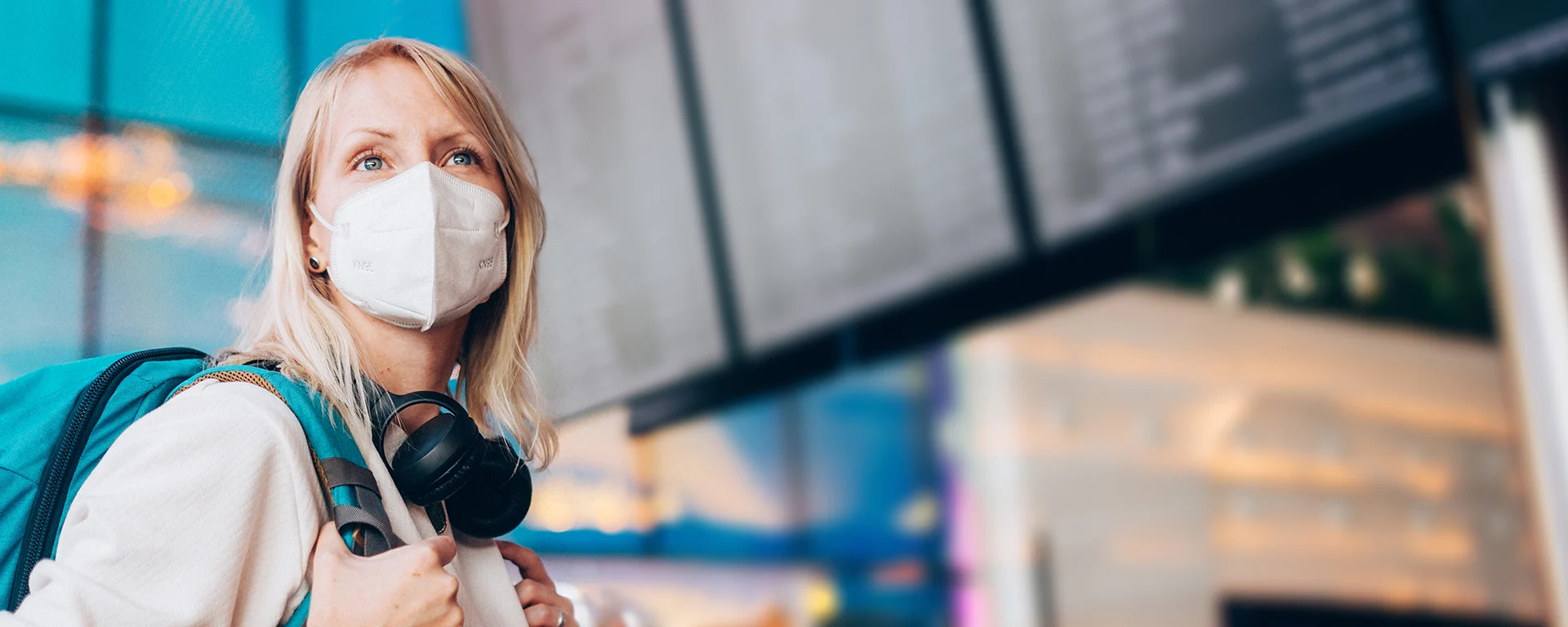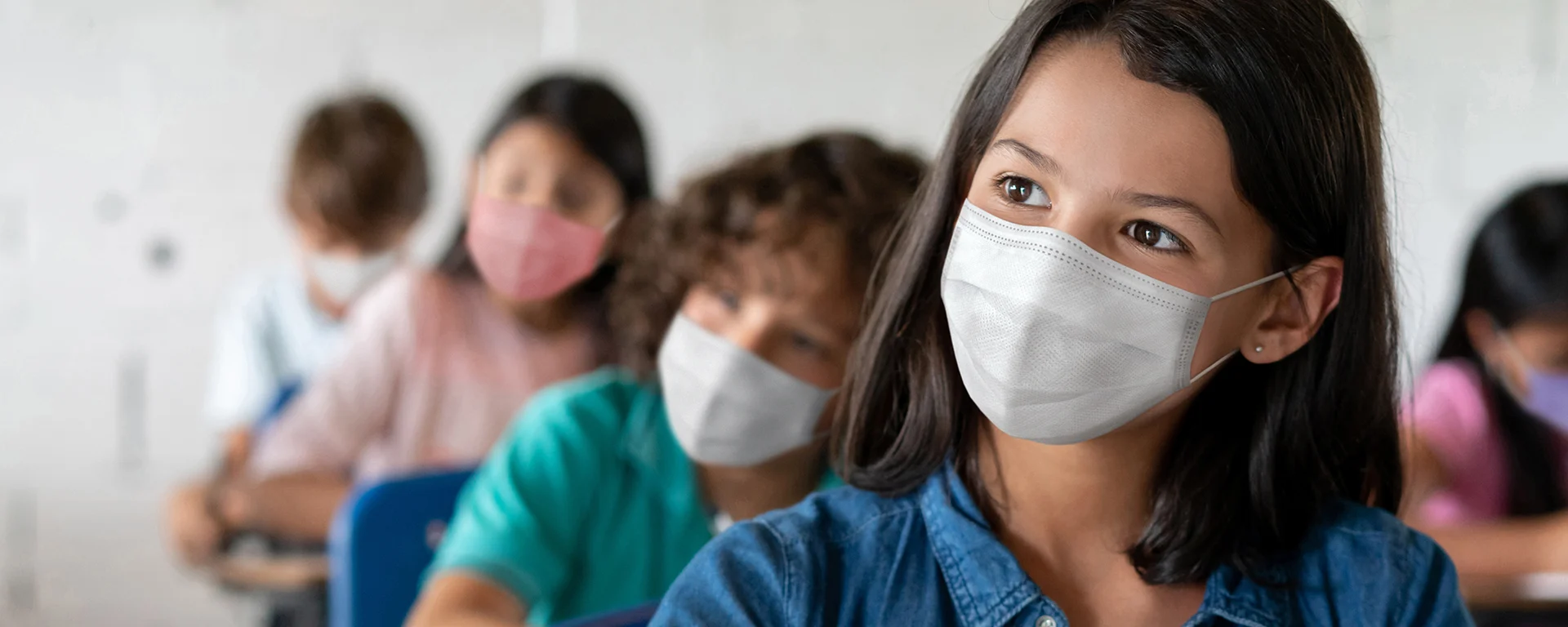COVID-19 Resolutions for the New Year
From masks to boosters to self testing, we're adding them all to our list of 2022 resolutions!
As of September 20, 2022, this post will no longer be updated.
Update June 2, 2022: CDC and FDA continue to update who is eligible for booster shots. For the most recent information, visit the CDC website.
Congratulations to those rare few who have already put their New Year’s resolution to paper. Or perhaps you noted them in your phone and scheduled reminders in your calendar.
But then there’s the rest of us…. Like many, I am just beginning to think about my goals for this year, already in progress. My final list of resolutions is sure to include some oldies but goodies: lose weight, exercise more, spend less money, eat healthier, learn how to…. But what else?
Many popular resolutions are about getting or staying healthy, so it seems fitting to consider a few new resolutions related to COVID-19, the global pandemic that has dominated our attention and impacted people’s physical and mental health for nearly two years. And with the new, more-contagious Omicron variant dominating the scene, these seem even more relevant.
Get a vaccine booster when I am eligible.
Vaccination remains our most powerful defense against COVID-19. In mid-November the CDC expanded booster eligibility to all adults (18 years and older) who received their last vaccine shot at least six months ago. In December, they added 16- and 17-year-olds to the list. And most recently, CDC is encouraging boosters for those who had their last vaccine shot of Pfizer or Moderna at least six months ago, or a J&J vaccine at least two months ago. To quote the CDC, “Booster shots have demonstrated the ability to safely increase people’s protection against infection and severe outcomes and are an important public health tool to strengthen our defenses against the virus.” They also significantly increase immunity to the Omicron variant.
And for those who have not yet received their first vaccination, it’s not too late. Children as young as five years old are now eligible, and research continues to mount that the approved vaccines are safe and extremely effective at preventing hospitalizations and deaths from COVID-19.
Follow the letter AND the spirit of COVID-19 safety protocols.
COVID-19 safety protocols differ depending where you live and work or go to school, but they have one common goal: keeping us safe. So let’s not game the system! For example, here in Los Angeles, I have to wear my mask indoors except when I’m eating or drinking. Some people assume that when they are seated at a restaurant with a glass of water, they can unmask and remain that way throughout their visit. While this may fit the letter of the law, it’s more sensible to consider the particular situation and respond accordingly. How many people am I in close contact with here? Is everyone vaccinated? Is anyone in my party immunocompromised or otherwise at higher risk of serious effects from COVID-19? Am I already at elevated risk for having or spreading COVID-19 based on other recent activity? Asking myself these questions will help keep me and those around me safe.
Get tested when I’m at high risk.
Certainly whenever I have any symptoms, I will get a test, but there may be other times it is prudent to get tested as well. Depending on the prevalence of COVID-19 in my area, the safety measures I’ve taken, and the number of recent and imminent close contacts, my risk level may justify taking a test even if I don’t have any symptoms. I will use the COVID Risk Quiz, which considers all of these factors, to help me evaluate my risk level for having and spreading COVID-19.
When they are readily available, I will stock up on at-home tests.
I want to emphasize that I have no intention of stockpiling test — nor do I advocate that others do — while holiday travel and the Omicron surge are taxing the current supply.
When supply again outstrips demand though, I plan to purchase a few, so that I have a small supply of over-the-counter (OTC) tests on hand. These rapid antigen tests have the benefit of getting results back in under 30 minutes. (Lab-based tests usually require a wait of many hours or even days until you receive your results.) And by keeping a few at home, I can take a test easily, without interrupting my day, or I can ease everyone’s mind by offering one to a friend who shows up to a social gathering insisting that her cough is only a cold.
These tests have not always been readily available in the United States, but in November 2021, the Biden administration declared it a priority to get more OTC tests in production and on the market and to make them available at price points accessible to all. We are now beginning to see those results. Just before the holidays, the shelves of pharmacies and major retailers were more consistently stocked. And while demand is extremely high right now, more testing products are being authorized for OTC use, and test makers are increasing production such that supply should see measurable improvements in the first couple months of the new year.
Commit to staying home when I’m under the weather.
I've historically been terrible at this one, bringing my colds, a sinus infection, the flu, and who knows what else to the office with me. Like so many people, I felt that at most places I’ve worked, I was expected to show up to the office even if I wasn’t feeling well (unless severe illness was readily apparent). But by doing so, I probably lengthened my own recovery time and put my coworkers at risk.
If the COVID-19 pandemic has taught us anything, it’s that coming to work when you’re sick is a bad idea. So call in sick if you have a scratchy throat, or work from home if you have that luxury. If you have COVID-19 symptoms, don’t have lunch with a friend before your test results come back. And if you do test positive, stick out the whole isolation period (recently shortened!), even if you feel better or are going stir crazy. Stay the course, fully recover, and keep everyone around you safe, too.
Take other measures to keep my immune system strong.
When your immune system is taxed, you’re at greater risk. Here are a few other commitments I’m making to keep myself healthy:
Get my flu shot
Schedule routine check-ups
Get enough sleep
And those evergreen resolutions: Exercise and eat healthy!
I encourage you to adopt any of these that resonate with you, and to use the COVID Risk Quiz to help assess your risk of getting or spreading COVID-19. And please share with us by email (info@whentotest.org) or on our social media feed (LinkedIn | Facebook | Twitter) any other resolutions you have in mind to keep yourself and your loved ones safe this year.






